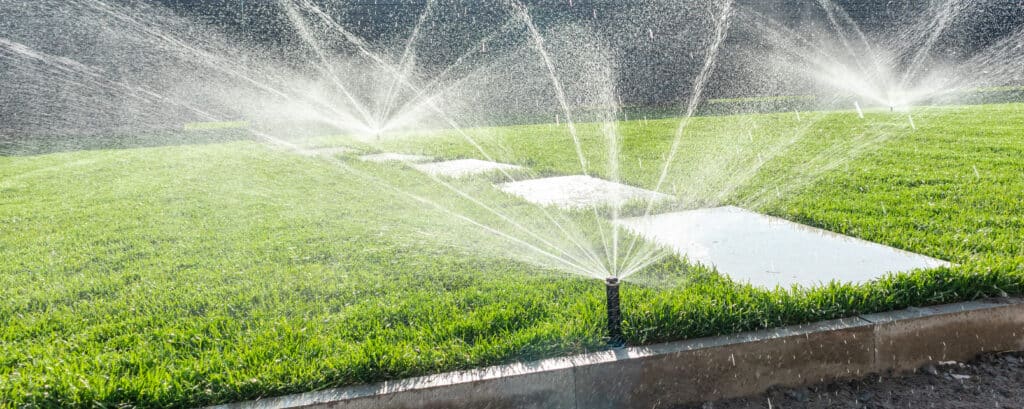Maintaining a lush and healthy landscape in Florida can be a challenge due to the state’s unique climate and frequent periods of drought. One of the key factors in achieving a vibrant landscape is implementing an efficient irrigation system. In this blog post, we will explore the importance of proper irrigation for your Florida home, discuss different types of irrigation systems suitable for the region, and provide valuable tips on optimizing water usage to conserve resources and save money.
Understanding Florida’s Climate and Irrigation Needs
Florida’s climate is characterized by high temperatures, abundant sunlight, and a combination of rainy and dry seasons. These factors significantly impact the water requirements of plants and lawns, making irrigation essential for maintaining healthy vegetation. With the prevalence of sandy soils that drain quickly, it’s crucial to ensure that your plants receive adequate water to thrive.
Types of Irrigation Systems for Florida Homes words): There are several irrigation systems available for homeowners in Florida. Let’s explore a few popular options:
- Sprinkler Systems: Traditional sprinkler systems, including pop-up and rotor sprinklers, provide efficient coverage for larger areas. They can be programmed to deliver water at specific times and can be adjusted to accommodate different plant and soil types.
- Drip Irrigation: Drip irrigation is a highly efficient method that delivers water directly to the plant roots, minimizing water loss through evaporation or runoff. This system is particularly suitable for gardens, flower beds, and trees, as it provides precise and targeted watering.
- Micro-Irrigation: Micro-irrigation systems utilize low-volume emitters to deliver water slowly and directly to individual plants. This method is effective for potted plants, hanging baskets, and container gardens, promoting water conservation and minimizing waste.
Best Practices for Efficient Irrigation
To maximize the effectiveness of your irrigation system and promote water conservation, consider implementing the following best practices:
- Establish a Watering Schedule: Determine the optimal watering frequency and duration based on the specific needs of your plants, taking into account factors such as soil type, plant species, and weather conditions.
- Watering Early or Late: Watering your landscape during the early morning or late evening hours minimizes water loss due to evaporation, allowing plants to absorb moisture more effectively.
- Consider Weather-Based Controllers: Installing weather-based controllers or smart irrigation systems can help automate your watering schedule by adjusting it according to local weather conditions, ensuring that water is used efficiently.
- Inspect and Maintain Your System: Regularly inspect your irrigation system for leaks, clogs, or broken components. Ensure that sprinkler heads are properly adjusted to avoid overspray onto hardscapes or non-targeted areas.
- Incorporate Rainwater Harvesting: Utilizing rain barrels or a rainwater collection system can help supplement your irrigation needs during rainy periods, reducing reliance on municipal water and conserving resources.
Water Conservation Tips for Florida Homeowners
Conserving water is not only beneficial for the environment but also helps reduce your water bills. Here are some additional water conservation tips specifically tailored for Florida homeowners:
- Choose Native and Drought-Tolerant Plants: Opt for native plant species that are well-adapted to Florida’s climate. These plants typically require less water and are more resistant to drought conditions. Additionally, consider incorporating drought-tolerant plants in your landscape design to minimize water usage.
- Group Plants with Similar Water Needs: Efficiently plan your landscape by grouping plants with similar water requirements together. This allows you to tailor irrigation zones and deliver the appropriate amount of water to different areas, avoiding overwatering or underwatering specific plants.
- Mulch Your Landscape: Apply a layer of organic mulch, such as wood chips or bark, around your plants and garden beds. Mulch helps retain soil moisture, reduces evaporation, suppresses weed growth, and regulates soil temperature, thus decreasing the need for frequent watering.
- Practice Smart Lawn Care: Adjust your lawn mower to a higher cutting height, as longer grass shades the soil and retains moisture more effectively. Consider allowing your lawn to go dormant during periods of drought, as most grass species in Florida have the ability to recover once water becomes available.
- Monitor Soil Moisture Levels: Regularly check the moisture levels of your soil to avoid overwatering. Invest in a soil moisture sensor or conduct the “finger test” by sticking your finger into the soil to determine if it feels moist or dry.
- Rain Sensor Installation: Install a rain sensor or rain shut-off device in conjunction with your irrigation system. These devices detect rainfall and automatically interrupt or adjust the irrigation schedule, preventing unnecessary watering during rainy periods.
- Regularly Maintain and Tune Up Your Irrigation System: Conduct routine maintenance on your irrigation system to ensure it operates efficiently. This includes inspecting for leaks, repairing broken or clogged sprinkler heads, and ensuring proper alignment and coverage.
- Educate Yourself on Watering Restrictions: Familiarize yourself with local watering restrictions and adhere to them. Many Florida municipalities have specific guidelines regarding watering days and times, so it’s important to stay informed and compliant.
By implementing these water conservation tips in conjunction with an efficient irrigation system, you can significantly reduce your water consumption while still maintaining a healthy and attractive landscape.
Conclusion
Efficient irrigation and water conservation practices are essential for homeowners in Florida to ensure the health and sustainability of their landscapes. By selecting the appropriate irrigation system, following best practices, and incorporating water-saving techniques, you can minimize water waste, lower your water bills, and contribute to the preservation of Florida’s precious water resources. Remember, a beautiful and thriving landscape can be achieved while being mindful of water conservation. Take proactive steps today to create a sustainable outdoor environment for your Florida home. Get a free estimate today!

